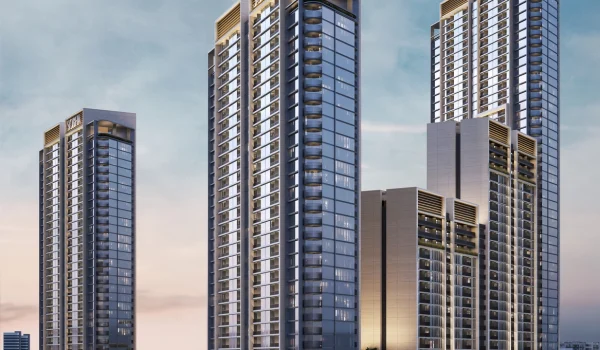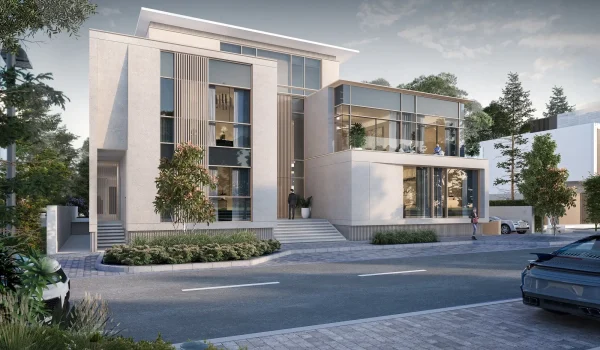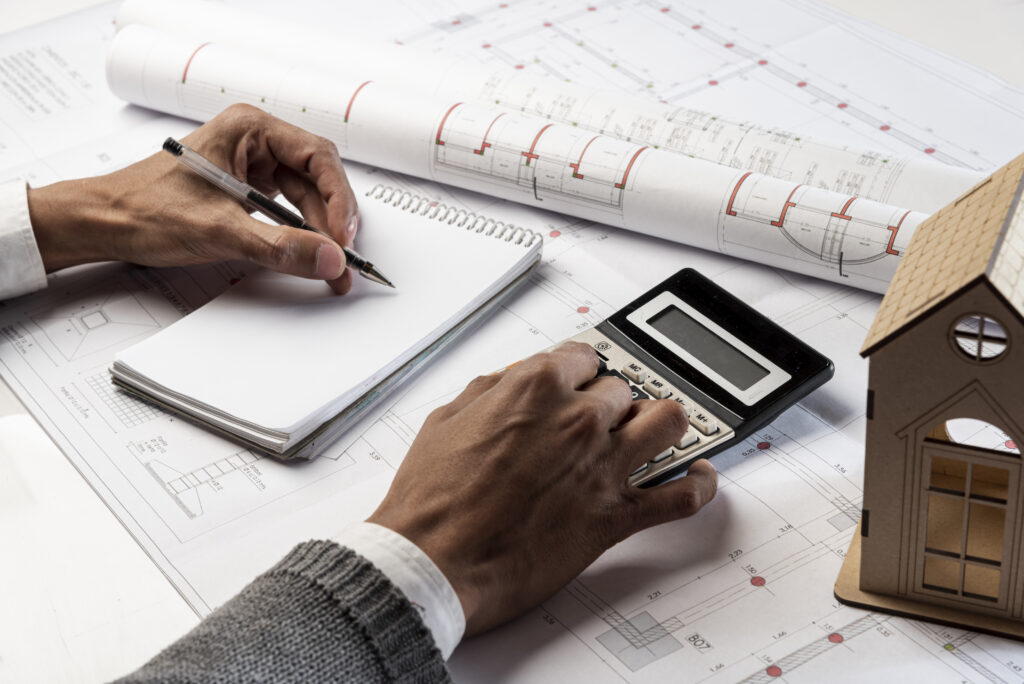Investing in Dubai real estate is an exhilarating journey filled with opportunities, yet it comes with its challenges. Whether you’re a first-time buyer or an experienced foreign investor, navigating the city’s dynamic property market demands a careful approach. Real estate mistakes in Dubai begin with a lack of understanding of the regulations and requirements that accompany every step of the process. These seemingly minor details can easily become major pitfalls if handled carelessly or without a strategic mindset. From neglecting due diligence to miscalculating expenses, small oversights can lead to financial repercussions.
In this post, we’ve gathered a comprehensive list of common mistakes made by buyers and investors. The aim is to arm you with the knowledge to sidestep these traps and navigate the landscape with confidence. By the end of this piece, you’ll be well-prepared to tackle any obstacles and ensure a successful and savvy investment.
Failing to Conduct Personal Research Before Buying

Let’s begin with one of the most significant real estate mistakes in Dubai that buyers make when venturing into the market. Many buyers don’t conduct their own thorough research and verification processes before making a purchase. This oversight can include several critical assessments, from evaluating the developer’s record to examining the project’s financial and legal status.
Usually, buyers skip essential details, operating under the assumption that everything in Dubai is automatically verified and secure. Or perhaps, they may solely rely on agents and agencies without conducting their own inquiries. They think that Dubai’s regulatory framework automatically filters out reliable developers. But they fail to recognize that the responsibility for verification predominantly lies with the buyer.
Another crucial overlooked aspect is the registration of the escrow account when investing in off-plan properties. Buying property that’s not RERA-approved or backed by a DLD-registered escrow account can result in numerous challenges. You might encounter construction delays, or worse, projects are put on hold or canceled due to compliance or financial deficiencies. And if payments don’t go through a regulated escrow account, even RERA would be powerless to assist. Plus, there’s always the risk of signing with blacklisted or bankrupt developers, making it complicated to recover your funds.
It’s essential to acknowledge that Dubai developers use exceptional marketing strategies, utilizing glossy brochures, captivating videos, impressive mock-ups, and engaging sales events. Many buyers tend to overly trust this marketing allure, becoming emotionally swayed by grand promises. In a nutshell, failing to do your due diligence can become one of the costliest real estate mistakes in Dubai.
Ignoring Location and Construction Quality Factors

Overlooking location and quality considerations is a misstep that budget-conscious buyers or first-time investors make frequently. Often, individuals feel pressured by their immediate financial limitations, focusing solely on short-term affordability rather than long-term value and performance. Unfortunately, this approach only leads to various real estate mistakes in Dubai.
Dubai’s property market is notoriously competitive, and there is an abundance of “bargain” units advertised, especially in fringe locations and low-budget projects. Low per-square-foot rates, reasonable down payment plans, flexible monthly installments, and early buyer discounts may appear as golden opportunities. However, this perception of affordability can turn out to be a trap, as price alone rarely conveys the full story. It’s a common misconception that every real estate investment in Dubai will appreciate over time. But in reality, the quality and location of the project are equally vital for capital growth and a high ROI.
The focus becomes solely about “buying low,” without probing deeper into why certain properties are cheaper. These affordable properties may be situated in poorly connected or underdeveloped areas, which inherently contributes to their lower costs. This scenario might lead to low or absent rental demand for those buying for investment purposes. Moreover, attractive pricing can also indicate compromised construction quality, utilizing subpar materials, poor finishes, and flawed design and layout. Failing to account for these realities is one of those subtle real estate mistakes in Dubai that only become obvious later.
Misunderstanding Freehold vs. Leasehold Ownership


A major pitfall for many prospective property buyers in Dubai is the lack of clarity surrounding freehold and leasehold properties. This misunderstanding can lead to issues down the line if buyers don’t grasp the nuances of each ownership type. To clarify, freehold properties grant you full ownership of both the property and the land it occupies for your lifetime. This means you have the freedom to resell, rent out, transfer ownership to someone else, or pass it down as an inheritance.
In contrast, leasehold properties are leased for a specified duration, typically between 30 to 99 years. With leasehold ownership, you have usage rights for that period but do not own the land itself. Once your lease expires, control reverts to the freeholder, who is the landowner. Additionally, leasehold ownership generally comes with restrictions that may require permission from the freeholder for activities such as renovations or subletting the property.
Many first-time buyers assume that all property ownership in Dubai is permanent and unrestricted, which, as you’ve just learned, is not the case. If you’re unaware that you’re purchasing a leasehold property, you may find yourself facing unexpected limitations later on. Reselling it can become a hurdle, especially if you have only a few years left on your lease. Moreover, financing options can also become more complicated, as many banks are cautious about lending for leasehold properties. This lack of clarity is a recurring example of real estate mistakes in Dubai that are easily preventable with proper research. Therefore, it’s crucial to verify a property’s legal standing through the DLD or your agent.
For a deeper understanding of both property type ownerships, you can also read our comprehensive guide on Freehold vs. Leasehold Properties in Dubai.
Forgetting About Additional Costs & Hidden Fees

Failing to account for minor costs is quite frequent when purchasing property. This is one of those real estate mistakes in Dubai that catches buyers off guard during the final stages of the transaction. These seemingly insignificant expenses can affect their finances, potential rental income, and sometimes even their ability to complete the purchase. For example, while you might focus exclusively on the standard 4% transfer fee from the DLD, you may overlook additional charges tied to title deed issuance and various administrative processing fees.
Another area where buyers often overlook expenses is the real estate agent’s commission. While it’s easy to fixate on the 2% of the purchase price allocated to the agent, don’t forget the 5% VAT that applies to this commission. Did you account for that? Other critical yet commonly ignored costs include the NOC (No Objection Certificate) fee, various mortgage-related charges, property registration fees, home insurance, utility setup fees, and DEWA (Dubai Electricity and Water Authority) activation costs, among others. If you haven’t thoroughly assessed these expenses in advance, you may find yourself struggling financially at closing time. This can potentially delay the transfer or push you to seek last-minute loans.
Furthermore, for investors, these overlooked costs can greatly diminish rental profits, especially during the initial year of ownership. The bottom line is that these unexpected financial burdens can lead to major real estate mistakes in Dubai. Therefore, it’s essential to evaluate all potential expenses beforehand. Consult your agent, advisor, or brokerage to obtain a comprehensive breakdown of upfront fees, post-transfer costs, and additional estimates. Alternatively, you can refer to our Complete Cost Breakdown for Buying Property in Dubai.
Skipping a Thorough Property Inspection

When buying property in Dubai, many overlook property inspection and evaluation. Such real estate mistakes in Dubai’s property market are pretty prevalent, whether you are investing in a newly constructed project or purchasing a resale property. Buyers can easily fall for aesthetics and marketing. They trust the staged images and videos, focusing on visual appeal rather than conducting a thorough assessment of the property. When they see fresh paint and luxurious finishes, they may assume that the property is in excellent working order.
Unfortunately, this is rarely the case. While transparency regarding a property’s condition may occur with new projects, remember that agents representing resale properties tend to close deals quickly. This can result in neglected inspections, as buyers wish to save time and streamline the process. By skipping this critical step, you may uncover hidden issues such as electrical malfunctions, plumbing leaks, drainage problems, or structural defects only after moving in or renting out the unit.
Although new builds typically have fewer complications, snagging remains a vital step, identifying minor defects before accepting the handover. Issues such as misaligned windows or doors, uneven finishes, or problematic fixtures can sometimes be found. Fortunately, most developers offer a limited timeframe, usually around 30 days, post-handover for buyers to report snagging issues. This means you have an opportunity to address any defects without incurring out-of-pocket expenses, but it’s important to act swiftly before this warranty window closes.
Not Appointing a Licensed Real Estate Agent

Skipping professional guidance is one of the easiest real estate mistakes in Dubai to avoid, yet many still make it. Many buyers attempt to navigate the complex market landscape themselves without a reliable agent. Many individuals mistakenly choose to deal directly with sellers, rely on acquaintances for recommendations, or, even more concerning, blindly trust online listings and social media.
While strict regulations and penalties exist to combat scams, they proliferate within the property market, targeting new and foreign investors. You’ll see numerous fraudulent listings and seller schemes involving phantom properties and requests for reservation deposits. There’s a history of such incidents, highlighting the importance of safeguarding your investment.
We recommend appointing a local real estate agency or agent, particularly for those entering the market for the first time. They are well-versed in market trends, pricing strategies, area regulations, and imminent developments, all of which can save you substantial time and effort while providing invaluable insights throughout your buying journey.
However, make sure the agent is registered with the Real Estate Regulatory Agency (RERA), as they follow a set of legal and ethical guidelines. A surprising number of real estate mistakes in Dubai, including poor investments and legal difficulties, are because of hiring unauthenticated agents. To verify your agent’s credentials, always request their RERA license number and confirm its validity against official channels. In essence, partnering with a licensed agent ensures you remain compliant with legal obligations.
Not convinced yet? Explore our comprehensive insights on how a skilled agent/agency can transform your Dubai real estate investment experience.
Falling for Unrealistic Budget-Friendly Deals

One of the most prevalent pitfalls for buyers in the Dubai property market is getting enticed by irresistible off-plan deals. The allure of dirt-cheap prices paired with flexible payment plans proves too tempting to resist. While this scenario isn’t necessarily a scam, shady developers and sellers sometimes use misleading marketing tactics to target inexperienced buyers. This type of impulse tops the list among common real estate mistakes in Dubai.
The reason this situation persists in the contemporary real estate landscape is the persuasive nature of these enticing advertisements. From glamorous offers to widespread social media promotions, you might encounter deals like “only 1% monthly for 100 months,” “pay AED 5,000 only per month,” or even “80/20 post-handover plans”. These phrases create an overwhelming sense of urgency and risk of missing out on a once-in-a-lifetime opportunity. The psychology at play here makes buyers believe they can effortlessly manage their expenses with a minimal upfront cost and tiny monthly payment requirement.
Falling into this trap is one of those avoidable real estate mistakes in Dubai that could cost far more than expected. These attractive deals can mask underlying issues, such as delayed or non-delivered projects, along with poor management and a lack of mandatory approvals. Furthermore, they could become a burden if construction is postponed, leaving you obligated to make monthly payments regardless. It’s also worth mentioning that flexible payment plans are used to offload lower-quality stocks or to fund projects by inexperienced developers. Consequently, you risk receiving a property with substandard construction quality, missing amenities, or finishes that fail to meet initial promises.
Underestimating Service & Maintenance Charges

It’s well-known that the Dubai Land Department (DLD) imposes substantial fees for basic property services. However, the trouble often arises when prospective buyers fail to budget for them, assuming they can manage without an analysis. Ignoring the intricacies of service charges can lead to significant financial miscalculations, turning into hefty real estate mistakes in Dubai.
These unavoidable expenses contribute to the upkeep of shared spaces, such as lobbies, corridors, elevators, and more. In gated communities and villas, service fees may also encompass landscaping and gardening services. Beyond these basics, service fees can include security measures (such as CCTV surveillance and security personnel), maintenance of swimming pools and gyms, and other recreational facilities, along with pest control, waste management, etc. Having considered these costs, it becomes clear how quickly expenses can pile up.
Another factor to keep in mind is that service charges are not uniform; they can vary based on location, property type, developer, and the amenities provided. Thus, it is imperative to investigate these charges meticulously before finalizing your purchase. Neglecting this step is one of those long-term real estate mistakes in Dubai that impacts your ROI and resale potential. These elevated service charges can affect return on investment if you’re seeking passive rental income right after purchase. Moreover, properties with high service fees can be more challenging to resell, as future buyers will likely factor these costs into their decision-making processes.

